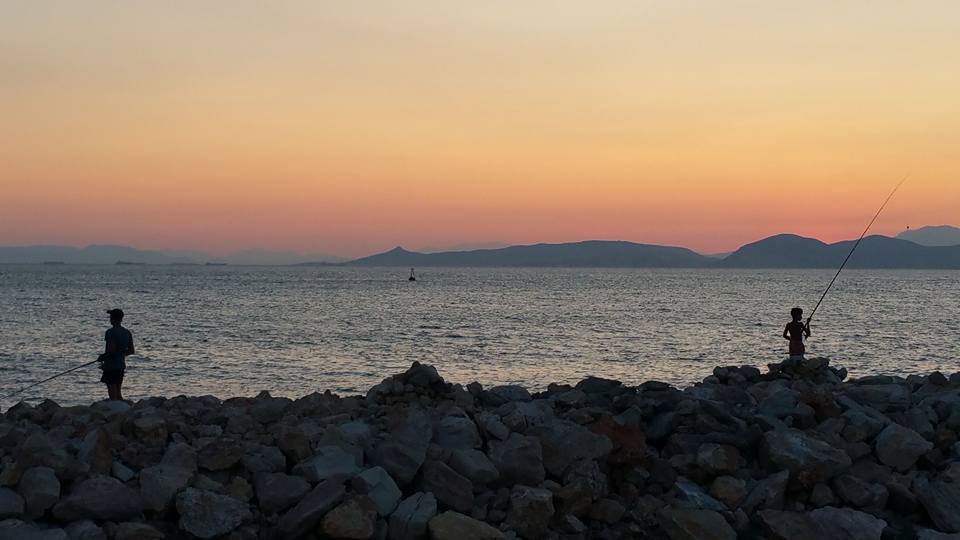Night fishing – some tips and tricks

One thing that can safely be said about night fishing is that the techniques vary widely. Whether you are busy casting surface lures for bass in the pitch black, deploying glowing lures to catch deep-running salmon, or simply sitting under the light of a lantern and fishing in pools for trout or catfish, you will need a variety of different methodologies to fish effectively in the dark.
No matter what school of thought you tend to follow, to fish for any species of fish in the dark, one thing has the agreement of all anglers: fishing at night is radically different from fishing in the daylight.

Headlamps, Colors, Lights or no Lights

Good anglers are equipped with the ability to see and understand details, however minor, and are ever vigilant when watching lines and the activity around lures. In low light and night time conditions, this attention to detail suddenly becomes a lot more difficult. Some anglers stick to using a black light to make their fluorescent lines more visible. However, only a handful of modern day anglers seem to use this method, courtesy of ignorance perhaps, or maybe lack of interest.
Several decades ago, the use of black light at night was a more prevalent thing, but not so much today. Having said that, good old intuition and feeling for even the slightest movement becomes much more significant in night fishing. This makes a sensitive rod and line more advantageous.

Moonlit nights are obviously a better option for night fishing than when it’s pitch-dark. Still, there is a never ending debate about whether pitch dark nights produce a better catch or dimly lit ones. The simple answer to this debate could be the fact that for certain fish you are better off in the dark, while for others you need some light to have a better sense of what you are doing and where.
In any case, a small headlamp is always a better option, since it frees both your hands and provides enough light for you to operate without alarming the game.
Familiarizing with the area

It is always beneficial to plan ahead, and if you are planning on going fishing in the dark, always prepare yourself well ahead of time. First and foremost, you need to go out in the day and get a feeling for the area. Familiarize yourself with the water, go on a boat to have a look around. While you are out imagine yourself fishing there in the dark and gain as much familiarity as possible. It is always easier to fish in the place that you know inside out and in the case of a mishap, you will be in a better position to make potentially life-saving decisions.
Don’t rush or hustle all over
Be patient in the dark. It is natural that while fishing in the dark one tends to end the job quickly as possible and leave for the safety and comfort of home. But perhaps the best strategy would be to spend as much as you need in one place and work it as much as possible before moving to a new place.
Hustling all over the place will not only decrease your catch, but it will also tire you mentally and physically and can potentially discourage you from any future nighttime endeavors.
Be quiet, stealth is the key
In most situations, being quiet and stealthy tends to be greatly beneficial. There are a number of ways that could contribute towards noise while fishing in the dark including the nuisance of the motor, moving your equipment in the boat, chucking your anchor overboard, and making simple adjustments to your engine. Noise will simply hinder your chances significantly of a successful catch, as this will spook the baitfish and therefore the game, and no amount of concentration can bring back spooked fish.
Be attentive: safety comes first

You must pay ample attention towards keeping your balance while unhooking the caught fish from lures, especially when your lures have multiple hooks. Many anglers have reported accidents while standing up in the dark in the excitement of a catch and then losing balance which almost every time ends in injury.
During the day, you are less prone to sudden collisions with objects in the water, purely because you can see the objects and can take any necessary action. In the dark, especially when there is no moon present, and you have a limited light source on board, chances of hitting something are far greater.
If you have any comments then please drop us a message on our Outdoor Revival Facebook page
If you have a good story to tell or blog let us know about it on our FB page, we’re also happy for article or review submissions, we’d love to hear from you.
We live in a beautiful world, get out there and enjoy it. Outdoor Revival – Reconnecting us all with the Outdoors
